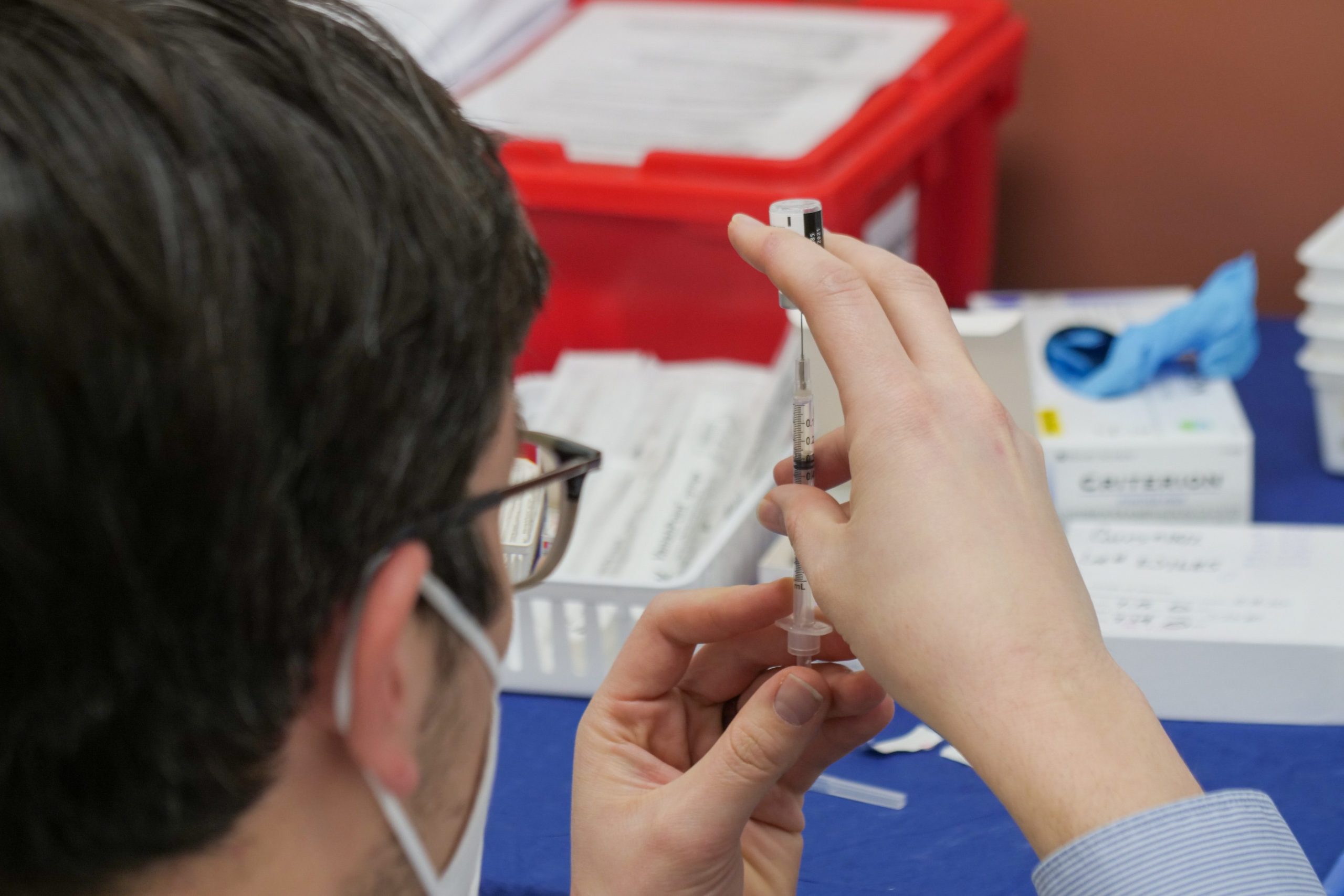Health officials have been observing thousands of vaccinated people to ensure the effectiveness of the doses.
Around 98.4% of those who received the Covid-19 vaccination in Qatar have not been infected with Covid-19, a senior health official has said.
Speaking on Qatar TV, Dr. Muna al-Maslamani, medical director of the Communicable Disease Center at Hamad Medical Corporation [HMC], said the remaining 1.5% of Qatar’s vaccinated population were infected by the virus after the first or second dose.
The official assured more than 400,000 vaccinated people have been monitored by authorities since the inoculation campaign kicked off in December to obtain statistics and ensure the effectiveness of the vaccine for the general public.
د. منى المسلماني : 98.4 % ممن أخذوا اللقاح لم يصابوا بفيروس كورونا #المسافة_الاجتماعية #تلفزيون_قطر pic.twitter.com/igKtIOmmFq
— تلفزيون قطر (@QatarTelevision) April 12, 2021
So far, data from December to March suggest the shots are highly effective in preventing the novel coronavirus. Dr. al-Maslamani advised all those eligible to take the vaccine to do so to prevent the spread of the virus.
The official also assured that both Moderna and the Pfizer/BionTech say their vaccines are effective against the new mutated strains from the UK and South Africa that have spread across Qatar in recent weeks. However, more studies are needed in this regard.
BREAKING: Qatar ramps up restrictions on country’s deadliest Covid-19 day
She also added that the duration of which the vaccine is said to be effective is, until now, six months. However, more research is being conducted to analyse the right duration.
“We are awaiting the outcomes of these studies which will answer questions, including whether to extend the effectiveness of vaccines to one year or not and if it is possible for Covid-19 to turn into a seasonal virus-like seasonal influenza and thus require an annual vaccine,” she added.
Second wave
Qatar is currently grappling with a more severe Covid-19 wave than that witnessed in 2020, with over 400 cases currently being tended to by doctors in the Intensive Care Unite as well as 900+ daily reported cases.
In December, eight people died from the novel coronavirus. The number decreased to three in January before shooting up to 10 in February, including an 11-year-old child. However, since March, more than 60 people have succumbed to the virus.
Health officials say the newly-found UK strain and South African variant are the cause for the increasing number of cases and ICU admissions, given their high transmission capabilities.
Read also: How to protect yourself against ‘the more deadly’ UK strain
When compared to the original virus, the UK variant, a more deadly strain, has 23 mutations and spreads up to 70% more easily, experts say. This has resulted in a sharp increase in Covid-19 positive cases in Qatar, going from 300-400 daily reported cases in February to over 900 in April so far.
More restrictions
The UK and South African variants first emerged this year, prompting authorities to impose tighter measures to contain the virus.
The closure of all dine-in options at restaurants and cafes, a reversion to online learning, and a decrease in capacity at workplaces, malls and transport systems are just some of the latest precautions.
“The outcome of the latest restrictions depends on the public’s adherence. We can only see the results after two or three weeks,” Dr. Al Khal added, pointing toward Qatar’s initial strict lockdown that helped delay a second wave.
Read also: Qatar administers ‘one millionth Covid-19 vaccine dose’
Authorities also announced that Taraweh prayer is to be observed at home, while also restricting the time between the call to prayer and the prayer to only 5 minutes.
Social gatherings, outdoor and indoor weddings are also prohibited to flatten the curve.
On Monday, Qatar reported 973 new daily cases, bumping the total number of active cases to 20,469, the highest in months.
Follow Doha News on Twitter, Instagram, Facebook and Youtube







